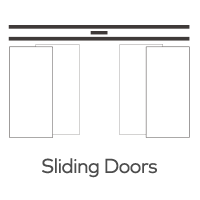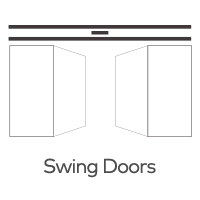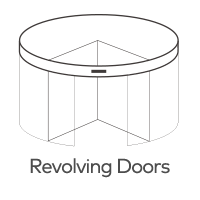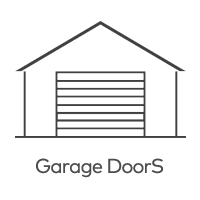What considerations are important when selecting an automatic sliding door controller for a commercial space versus a residential setting?
Automatic sliding doors have become a common feature in both commercial and residential settings, offering convenience, accessibility, and a modern aesthetic. However, selecting the right automatic sliding door controller for your specific application requires careful consideration of various factors. In this article, we'll explore the key considerations when choosing an automatic sliding door controller for commercial spaces versus residential settings.
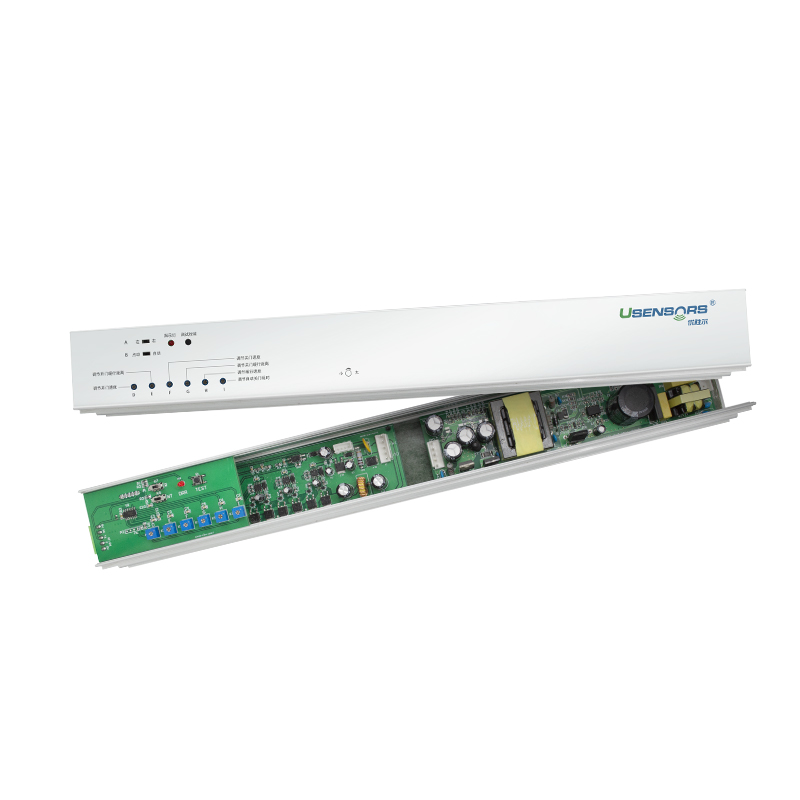
Commercial Space Considerations
1. Traffic Volume:
Commercial spaces typically experience high foot traffic, including customers, employees, and deliveries. It's crucial to choose a controller designed to handle frequent door openings and closings without rapid wear and tear.
2. Safety Features:
Compliance with safety regulations is paramount in commercial settings. Look for controllers with advanced safety features such as motion sensors, safety beams, and emergency stop buttons to ensure the safety of all building occupants.
3. Accessibility:
Commercial spaces must adhere to accessibility standards, including the Americans with Disabilities Act (ADA) in the United States. Select a controller that allows for easy integration with features like automatic door openers for individuals with disabilities.
4. Durability:
Commercial environments are often subject to harsher conditions, including exposure to the elements. Opt for controllers with durable components and weatherproofing, especially for external entrances.
5. Integration:
Commercial spaces may require integration with access control systems, security systems, and fire alarms for efficient building management. Ensure the controller can seamlessly integrate with these systems.
6. Energy Efficiency:
Energy costs are a concern in commercial spaces. Look for controllers with energy-efficient features such as adjustable closing speeds and low-power standby modes to reduce operational costs.
Residential Setting Considerations
1. Traffic Patterns:
Residential settings typically have lower traffic volumes compared to commercial spaces. A controller designed for occasional use may suffice for residential applications.
2. Safety:
While safety is essential in residential settings, the extensive safety features required in commercial spaces may not be necessary. However, consider controllers with obstacle detection and safety beams to protect residents, especially children and pets.
3. Aesthetics:
Residential users often prioritize aesthetics. Choose controllers that offer elegant design options to complement the home's style and enhance its curb appeal.
4. Noise Levels:
Noise may be a concern in a residential setting, particularly in quiet neighborhoods. Select controllers known for their quiet operation to maintain a peaceful environment.
5. DIY Installation:
Some residential users prefer easy, do-it-yourself installation. Look for controllers with user-friendly installation instructions and minimal wiring requirements if you plan to install the system yourself.
6. Remote Control:
Residential users may appreciate remote control options for added convenience, especially for controlling doors from a distance or when approaching with groceries or other items.
Common Considerations for Both Settings
1. Cost:
Budget considerations are crucial in both commercial and residential settings. Determine a budget range and seek controllers that offer the best value within that range.
2. Maintenance:
Regular maintenance is essential for any automatic sliding door controller to ensure its longevity and reliable performance. Consider the ease of maintenance and the availability of replacement parts when making your choice.
3. Warranty:
Check the warranty offered by the manufacturer to ensure protection against defects and malfunctions. A longer warranty period can provide added peace of mind.
4. Installation:
Professional installation is often recommended, especially for commercial settings where safety and compliance are critical. Ensure that installation services are available and affordable for your chosen controller.
In conclusion, selecting the right automatic sliding door controller should align with the unique requirements of the commercial or residential setting in which it will be installed. Consider factors such as traffic volume, safety features, durability, aesthetics, and integration needs to make an informed decision. By choosing the appropriate controller, you can enhance the functionality and convenience of your space while ensuring safety and accessibility standards are met.


